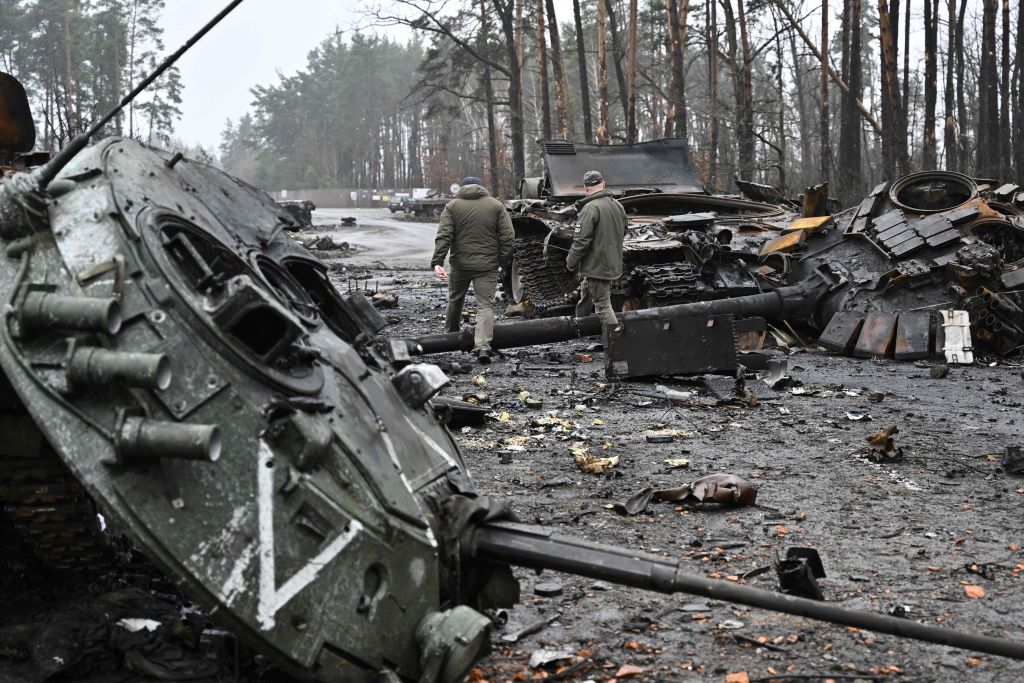In the two years of conflict in Ukraine, Russia has utilized various tactics to prolong the war. These tactics include implementing a draft, expanding state-sponsored mercenary companies, recruiting convicted prisoners, integrating proxies from occupied regions, and forcibly conscripting Ukrainians in the occupied territories. The Russian military has been heavily involved in the conflict, with soldiers serving on the frontlines and participating in combat operations. The presence of Russian soldiers in Ukraine has been well-documented, despite Moscow’s denial of direct involvement in the conflict.
The use of proxies and mercenaries has allowed Russia to maintain plausible deniability in its involvement in the conflict. By recruiting individuals from occupied Donetsk and Luhansk oblasts, Russia has been able to support separatist forces without officially committing its own military. Additionally, the recruitment of convicted prisoners and forced conscription of Ukrainians has bolstered the ranks of pro-Russian fighters in the region. These tactics have contributed to the ongoing instability and violence in eastern Ukraine, as well as the humanitarian crisis that has resulted from the conflict.
The impact of the conflict on both Ukrainian civilians and soldiers has been devastating. The continued fighting has resulted in a significant loss of life, displacement of populations, and destruction of infrastructure. Ukrainian forces have faced a formidable adversary in the well-equipped and trained Russian military, leading to numerous casualties and injuries among Ukrainian soldiers. The conflict has also taken a toll on the mental health of those involved, with many soldiers experiencing trauma and PTSD as a result of their experiences on the frontlines.
Despite the challenges and hardships faced by Ukrainian forces, they have demonstrated resilience and determination in their fight against Russian aggression. The Ukrainian military has received support from Western allies, including the United States and European Union, in the form of training, equipment, and financial assistance. This support has helped Ukrainian forces to improve their capabilities and effectiveness in combat operations against Russian-backed separatist forces. The conflict in Ukraine has brought international attention to the ongoing crisis and raised concerns about the implications of Russian aggression in the region.
The conflict in Ukraine serves as a stark reminder of the consequences of Russian aggression and expansionism in Eastern Europe. The ongoing war has fueled tensions between Russia and the West, with Russia facing international condemnation and sanctions for its actions in Ukraine. The situation in Ukraine remains volatile, with sporadic fighting and ceasefire violations continuing to threaten the stability of the region. The ultimate resolution of the conflict remains uncertain, as both sides remain entrenched in their positions and unwilling to compromise on their demands.
In conclusion, the conflict in Ukraine has had a profound impact on the country and the wider region, with Russia’s involvement exacerbating the already tense situation. The use of various tactics, including the recruitment of proxies, mercenaries, and forced conscription, has prolonged the conflict and contributed to the suffering of Ukrainian civilians and soldiers. The resilience and determination of Ukrainian forces, with the support of Western allies, have been key in their ongoing fight against Russian aggression. The international community must continue to monitor the situation in Ukraine and work towards a peaceful resolution that respects the sovereignty and territorial integrity of the country.















